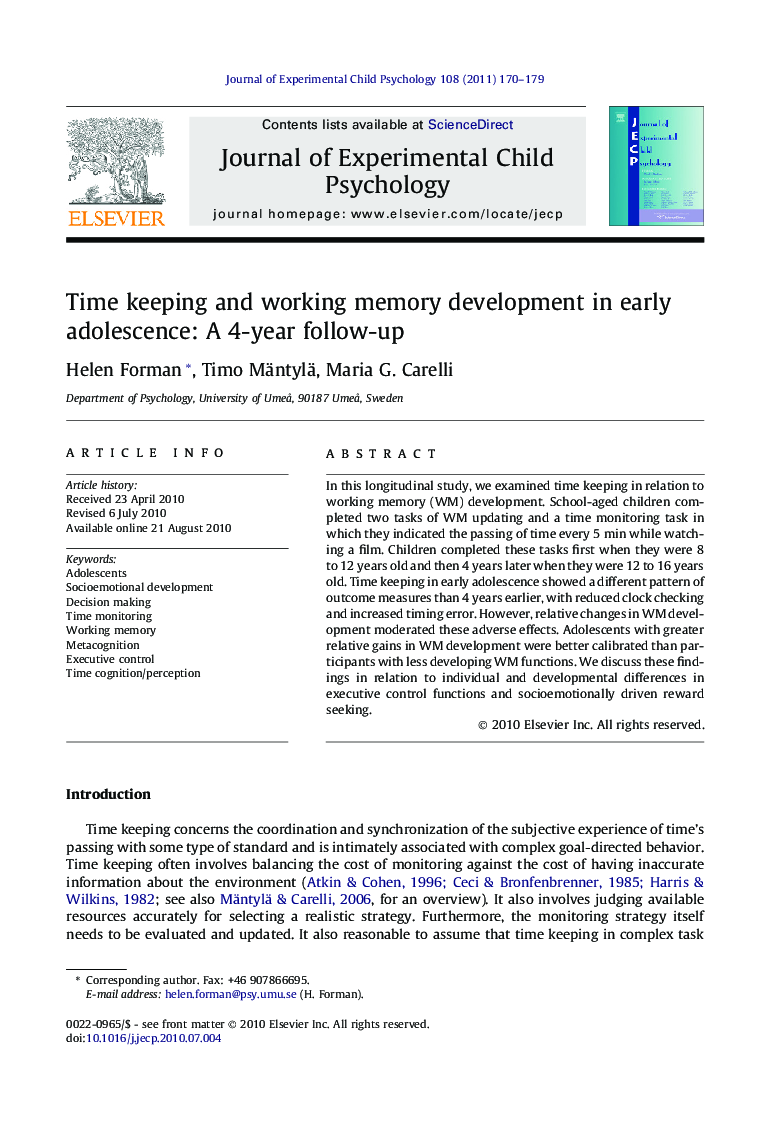| Article ID | Journal | Published Year | Pages | File Type |
|---|---|---|---|---|
| 918517 | Journal of Experimental Child Psychology | 2011 | 10 Pages |
In this longitudinal study, we examined time keeping in relation to working memory (WM) development. School-aged children completed two tasks of WM updating and a time monitoring task in which they indicated the passing of time every 5 min while watching a film. Children completed these tasks first when they were 8 to 12 years old and then 4 years later when they were 12 to 16 years old. Time keeping in early adolescence showed a different pattern of outcome measures than 4 years earlier, with reduced clock checking and increased timing error. However, relative changes in WM development moderated these adverse effects. Adolescents with greater relative gains in WM development were better calibrated than participants with less developing WM functions. We discuss these findings in relation to individual and developmental differences in executive control functions and socioemotionally driven reward seeking.
